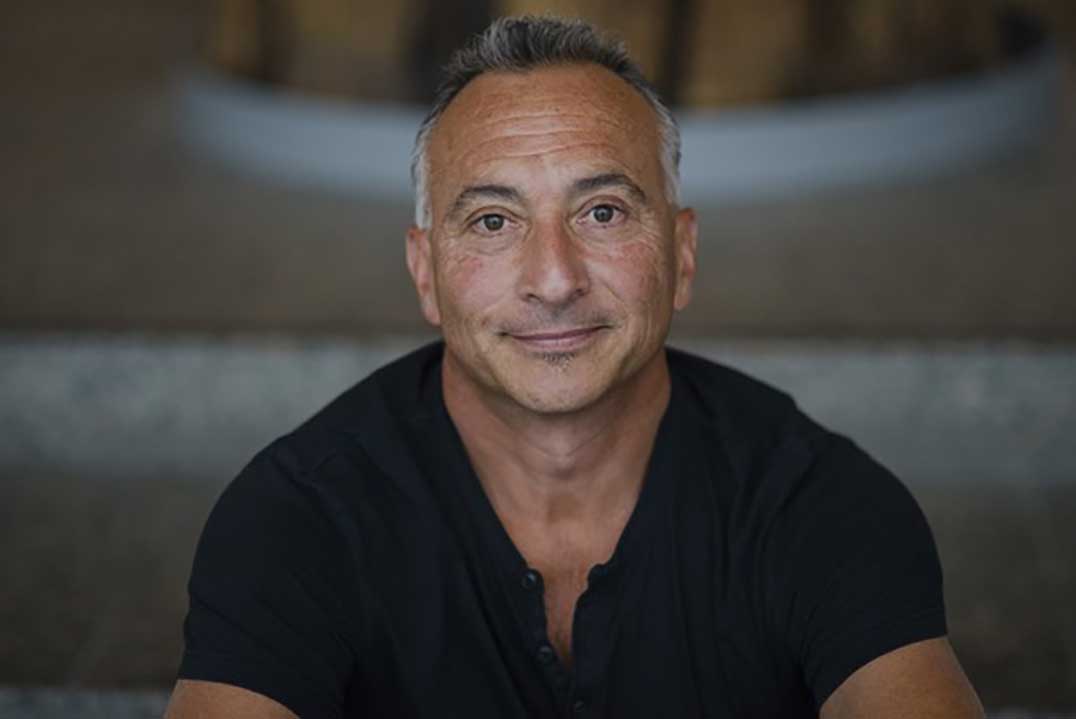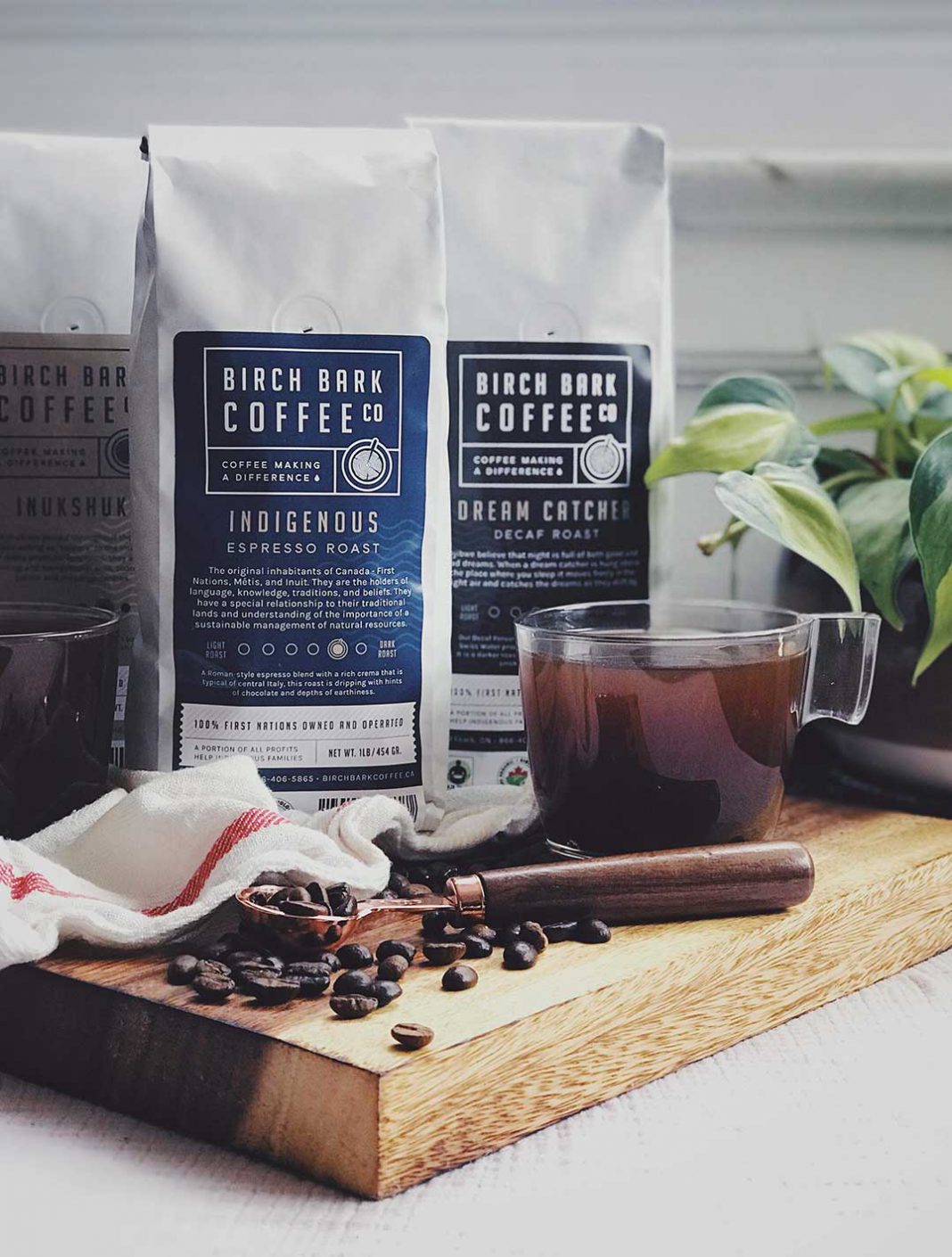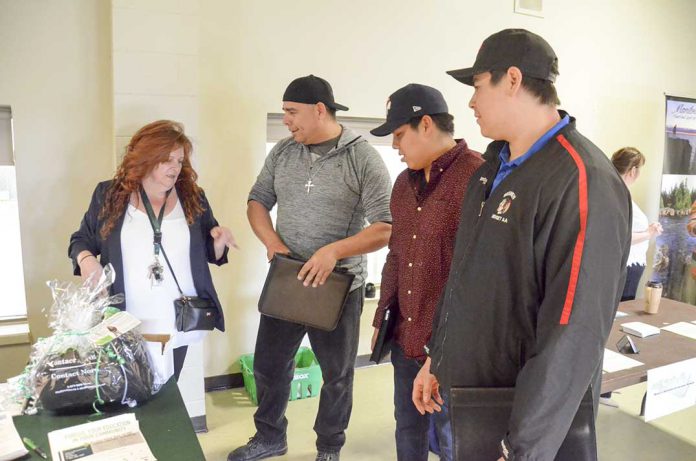Birch Bark Coffee Co.
BIRCH ISLAND––Mark Marsolais-Nahwegahbow has spent 25 years working in social services and supporting Indigenous communities. He has now added social entrepreneur to his list of accomplishments.
Mr. Marsolais-Nahwegahbow’s Birch Bark Coffee Company is 100 percent First Nation owned and operated. Mr. Marsolais-Nahwegahbow, a member of Whitefish River First Nation, is both passionate about coffee and determined to fix the drinking water advisory problem in First Nations communities across Canada.
“I wanted to offer a product that gives back to my communities,” he said. The company’s mission goes beyond offering delicious coffee. It’s also about giving back and offering a better quality of life by providing clean drinking water to Indigenous communities suffering from poor water conditions. For every 40 bags of coffee sold, Birch Bark Coffee is able to equip one home with a certified Belkraft water purification unit at no cost to the family. “Water is a fundamental right,” he said. “It’s an issue that’s been neglected in some cases for decades.”
Mr. Marsolais-Nahwegahbow had a fortuitous meeting with a man who had worked in the water industry for 45 years, designing and building water purifications systems for Red Cross to take overseas. “He heard what I was trying to do,” said Mr. Marsolais-Nahwegahbow. “He created a home-based system with a washable cartridge. It’s the only cartridge that’s washable. This is a user-friendly purifier that hooks up to the kitchen sink. It’s certified and tested. The Doulton filters have been around for years.”

Mr. Marsolais-Nahwegahbow has done extensive research on water issues. “I saw that Indigenous and Northern Affairs Canada (INAC) has made a commitment to end all long-term drinking water advisories on public systems on reserves by 2021,” he said. He believes that commitment is misleading. “They are picking and choosing communities who have long-term advisories over one year old. There are over 300,000 First Nations people across Ontario and hundreds of thousands of First Nations people across Canada. For every one advisory on the website that’s taken down, two more pop up.”
He spoke to people on reserves, to researchers and to scientists at the University of British Columbia about water purification systems. Most are made using plastic water filters and use chemicals. “Chlorine is benign on its own,” Mr. Marsolais-Nahwegahbow explained. “A little won’t hurt but mix it with organic matter and dilute it with water and you’ve created a chemical that’s one hundred times more powerful.” Government websites state that continuous studies on the use of chlorine are required “because they don’t know the long-term effects. They can’t tell you what a safe amount of chlorine is for human consumption. There’s no benchmark, nothing to compare it to.”
“I can’t fix the big water plants,” he continued. “I can work to the house level. I can provide purification that takes out chemicals and other bad stuff.”
Ontario’s Curve Lake First Nation will be the first recipient of clean drinking water through the company’s social enterprise program. Curve Lake has 500 to 700 homes but no water treatment plant. “They are suffering there,” said Mr. Marsolais-Nahwegahbow. “The government in their wisdom provided bottled water. Over two years the government spent $2.14 million to ship plastic water bottles to Curve Lake. It’s a big problem in the landfill now. The government just added to the problem.”
He is challenging the government to put those dollars into a trust fund instead. When the community eventually needs new cartridges the money will be available from the trust fund to replace them.
He wants his company to be a role model to Indigenous communities and to demonstrate that change is people driven and will happen when people take action. “This is about making this world a better place,” he shared. “I do this to see the smiles on the faces of children who can now drink clean water from their homes.”
Interest in Birch Bark Coffee is going viral. “I never expected things to move this fast,” said Mr. Marsolais-Nahwegahbow. “There’s been interest from the Chippewas of Wisconsin; from Rich Francis of Top Chef to use in his culinary restaurant; from Autumn Peltier (of Wiikwemkoong) who wants to support the cause.” There’s been interest from CBC, CTV and APTN. Edible magazine wrote a small piece on the company. “This has been about a year in the making,” he said. The company only launched 30 days ago.
The quality of the coffee itself is important. “My wife and I put a lot of work into ensuring the coffee roasts are all silky smooth,” said Mr. Marsolais-Nahwegahbow. Birch Bark coffee uses only high-end beans and is certified organic and fairtrade, “which means we are supporters and believers in sustainability and healthy choices,” said Mr. Marsolais-Nahwegahbow.
Purchasers can expect freshly roasted coffee beans within days of roasting (depending on where you’re located). “Let’s face it,” he said. “Coffee off the shelf or coffee beans in a hopper are not always as fresh as they appear. When you order from Birch Bark Coffee Company you know your coffee was freshly roasted.”
Birch Bark coffee is available in several roasts including Dream Catcher Decaf, Coureur des Bois medium roast, Inukshuk or Summer Solstice dark roast, and Indigenous espresso roast.
Purchases can be made at www.birchbarkcoffeecompany.com. The company is encouraging customers to share on social media using the hashtag #grounds4change.




